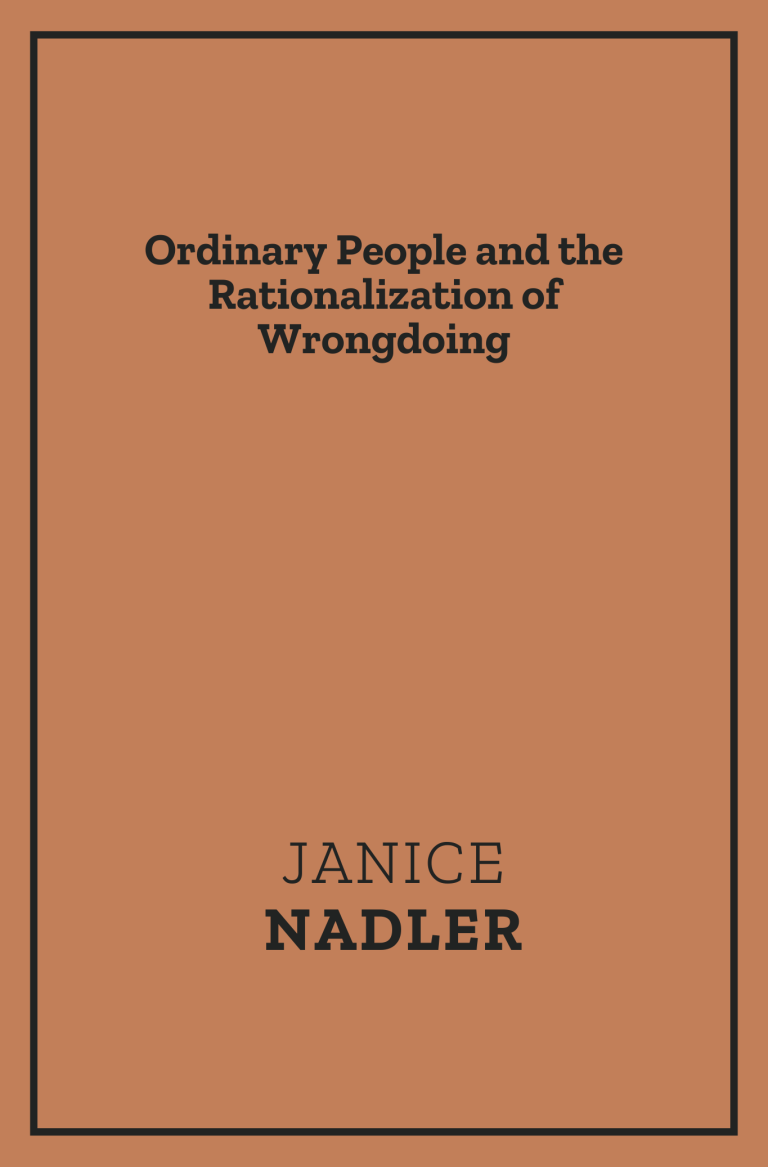From Michigan Law Review
In March 2019, over fifty people were criminally charged with participating in a scheme to gain fraudulent student admissions to various U.S. universities. How did these individuals end up engaging in plainly nefarious felony criminal offenses? Some of the perpetrators were likely fully aware of both the criminal and unethical nature of their behavior. But others seem to have convinced themselves that their behavior was acceptable because this is how the “system” works. In his book “The Law of Good People,” Yuval Feldman argues that people’s limited awareness of the unethical nature of their behavior requires redesigning legal rules to anticipate this aspect of human psychology. Feldman’s bottom line is that because people are often unaware of the moral meaning of their behavior, law must focus on identifying and regulating that behavior before the fact, rather than punishing it afterwards.
This review explores an important category of wrongdoing for which the traditional regulatory approach of threats of punishment ex-post might in many cases be suboptimal: corruption. This category provides examples of settings where actors are difficult to deter within standard enforcement frameworks because their motivations are complex. Building on my earlier work on expressive law and social norms, I develop an alternative conception of compliance achieved by supplementing threatened sanctions with leveraging the expressive power of law to decrease the likelihood that people will deceive themselves about the social and ethical meaning of their behavior. Theories of expressive law posit that law can influence behavior through means that go beyond the legal sanctions threatened for violation.
I will specifically focus on informational expressive law: the idea that the state can deploy law to provide information, which can in turn change individual beliefs and social norms, which in turn can shape behavior. By leveraging the informational function of expressive law, the state can identify situations in which individuals are likely to fail to fully appreciate the meaning of their behavior. Identifying and sorting “good people,” I argue, is less important than identifying situations and structures that are amenable to legal interventions that leverage social norms.

